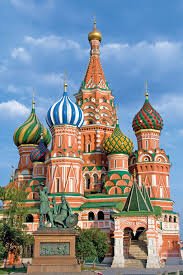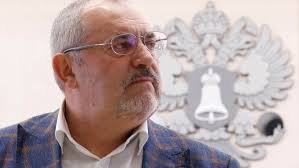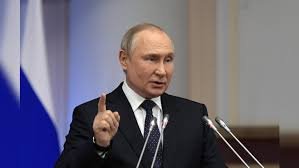Russia is holding the presidential election from Friday as the incumbent President Vladimir Putin is widely expected to secure victory, barring any unforeseen developments in the nation.
The election results are anticipated to be announced shortly after the election is ended, with the winner set to be inaugurated in May.
If successful, Putin will begin another six-year term, extending his tenure as the longest-serving Kremlin leader since Josef Stalin. A huge accomplishment to Putin.
War’s impact on elections
Meanwhile, voting is set to occur in parts of Ukraine currently under Russian control and subject to Russian law. Ukraine has expressed its determination to remove all Russian soldiers from these annexed regions, Reuters reported.
Additionally, for the first time in a Russian presidential election, a remote online voting system will be implemented, this is to link faraway regions like Siberia in Russian territory to also vote.
It is also reported that Russian citizens residing in Kerala’s Thiruvananthapuram casted their votes for the Russian presidential elections at the booth arranged at the Honorary Consulate of the Russian Federation, Russian House, A milestone for Kerala.
Russia is willing to conduct presidential elections spanning from March 15 to 17, during which Russian citizens will cast their votes from Friday through Sunday across the country’s 11 time zones, a big challenge to overcome. The Central Election Commission (CEC) of Russia has approved only three candidates to challenge incumbent President Vladimir Putin, the situation repeats itself.
What do EU and NATO say?
Earlier, on Thursday, both the EU and NATO jointly released a statement that the upcoming election in Russia, they anticipated to result in the re-election of Vladimir Putin as president, would not be considered free or fair as been express many times before.
They emphasised that the Kremlin’s suppression of all opposition voices has undermined the integrity of the electoral process, a blow to Russia regarding their democracy.
“We know, given the track record of how votes are being prepared and organised in Russia under the current Kremlin administration and regime, how this will look like,” said European Union spokesman Peter Stano on thursday.
NATO Secretary General Jens Stoltenberg also said the ballot “in Russia will not be free and fair”.
“We know already that opposition politicians are in jail, some are killed, and many are in exile, and actually also some who tried to register as candidates have been denied that right,” he said.
Moreover, Putin’s reelection would probably extend his rule until at least 2030. Following constitutional changes in 2020, he would then be able to run again and potentially stay in power until 2036 a move expected by many in the west.
What about the opposition?
 No legitimate opposition candidate has been permitted to appear on the ballot. Putin is officially pitted against three candidates endorsed by the Kremlin, representing political parties aligned with his policies and loyal to his leadership. So, really is Russia reverting back to its ways in the Soviet Union
No legitimate opposition candidate has been permitted to appear on the ballot. Putin is officially pitted against three candidates endorsed by the Kremlin, representing political parties aligned with his policies and loyal to his leadership. So, really is Russia reverting back to its ways in the Soviet Union
The contenders standing against Putin include Leonid Slutsky of the Liberal Democratic Party, Vladislav Davankov of the New People Party, and Nikolay Kharitonov of the Communist Party (a homage to the USSR). All three individuals are perceived to be sufficiently aligned with the Kremlin, and none have expressed opposition to Russia’s military actions in Ukraine, a sentiment expressed by most Russians.
 However, Boris Nadezhdin, an anti-war candidate, was disqualified from running, as was Yekaterina Duntsova essentially allowing nationalists only to participate
However, Boris Nadezhdin, an anti-war candidate, was disqualified from running, as was Yekaterina Duntsova essentially allowing nationalists only to participate
Vladimir Putin
Putin, aged 71 and a former KGB lieutenant colonel and was a spy to the USSR in USA and assumed the role of acting president after being appointed by Boris Yeltsin on the final day of 1999. He secured victory in the 2000 presidential election with 53.0% of the vote,slight beating the opposition, followed by a landslide win in 2004 with 71.3% of the vote.
In 2008, Dmitry Medvedev ran for president while Putin served as prime minister. Putin then reclaimed the presidency in 2012, winning with 63.6% of the vote, and again in 2018 with an overwhelming 76.7% of the vote and the same is to happen in 2024 too.
How long can a Russian president rule?
Putin’s presidency has surpassed the tenures of all Russian leaders since Josef Stalin, surpassing even Soviet leader Leonid Brezhnev’s 18-year reign a geat milestone for him.
The 1993 Russian constitution, loosely based on France’s 1958 constitution, was initially perceived in the West as a step toward democracy in post-Soviet Russia. Initially, it stipulated that a president could only serve two consecutive four-year terms although there have been many changes to this.
However, amendments made in 2008 extended the presidential term to six years, while those in 2020 effectively reset Putin’s presidential term count to zero from 2024, potentially allowing him to stay in power until 2036. These changes also included provisions banning the cession of any territory to prevent the break of russia (regarding chechens nationalism).












Comments 1